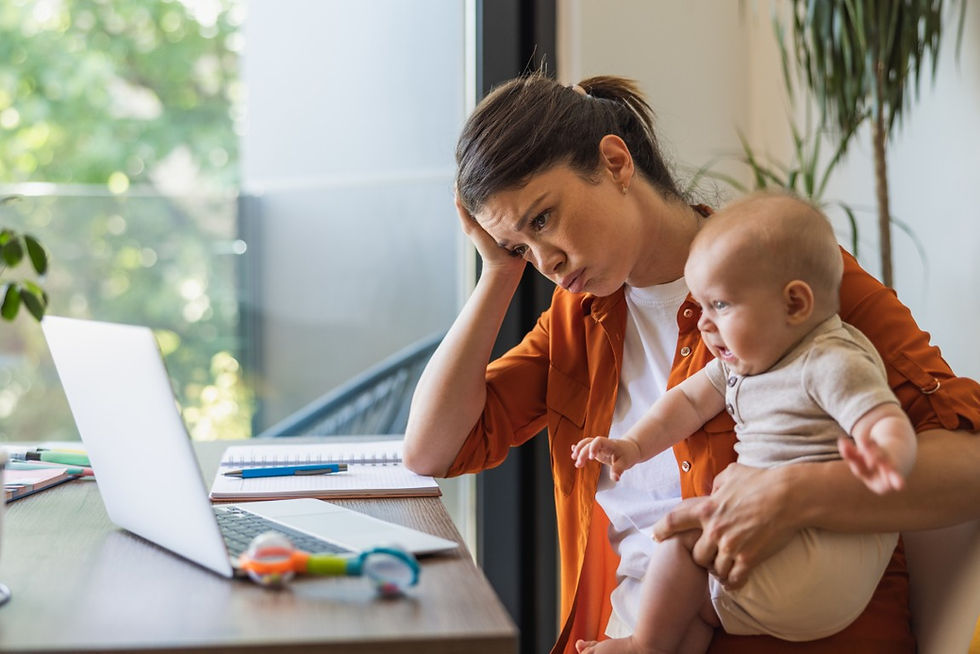4 Ways You Can Support Your Child Through Therapy
- Sonja Friedlan

- Oct 27, 2018
- 3 min read
Updated: Sep 5, 2025

One of the most common questions I get asked as a child therapist is, “How can I help my kid get the most out of their therapy sessions?” Once your child is well into their therapy routine at Bright Star Counselling, there is generally only about at 10 minute meeting at the beginning of each session in which we can share updates. Here’s a few other appropriate times and ways you can engage your child throughout their therapy duration to help them process the feelings and emotions they may be going through.
On the Car Ride to Counselling
Children are spontaneous by nature and will likely not be planning ahead for their counselling session. They live in the moment, and will address issues they want to talk about in counselling on their own, when they are ready. Don’t pressure them into talking too much about what they might want (or not want) to discuss in their session. Just use this time to recap on their regular day events.
On the Car Ride After Counselling
Please do not drill your child about the session. It is important for your child to not feel under pressure while in counselling. Counselling is a safe place for your child to explore feelings without expectation. You can ask a few questions, in general, if there is anything your child wants to share with you, but if they don’t leave it at that. Let them know that you are always there to listen, whenever they may be ready to talk.
At Home
Since home is where you’ll spend the most time with your child, it’s where you’ll want to take the time to help your child manage their anxious feelings. Often children can’t recognize when they are feeling worried or anxious and one of the first steps is helping them them to name the emotion they are feeling so that you can help support them through their feelings. Here’s a few ideas of or words you can use:
It looks like you are feeling a big feeling.. how big do you think it is? This big? Or is it this big? (Using your arms as a demonstration)
What is the name of that big feeling? ( if no answer..) Can I try and guess it? - give two options.
The big feeling of worry looks like it’s giving you some trouble. It looks like it’s really bothering you.
- give your child a chance to problem solve here -
Can you remind me of what you learned with Sonja at therapy, that can help you when you are feeling this big feeling?
Can you show me how to do it?
Using new coping skills is practise, practise, practise. Your child’s brain is in the process of creating new neural pathways, and learning to challenge his or her old way of thinking. Anxiety can be pretty convincing and learning to ignore it, and challenge it, takes a lot of practise. The more opportunities your child has to practise, the easier it will get.
At School
As your child spends a lot of the day at school, sharing your child’s coping strategies with teachers can be beneficial. It is important to do this together with your child, so you are respecting his or privacy and letting your child take the lead in managing the anxiety. In counselling we work towards the goal of your child using strategies they think works the best. A key ingredient in the counselling process, which you will hear me repeat many times, is to let your child be the problem solver. Setting up a meeting between yourself, your child and your teacher to explain how best to support your child’s coping strategies will provide support and consistency to your child’s progress.
Parents are often anxious to know how their child is doing after every session. Recognizing their big feelings, the trigger and being able to use a coping strategy takes time - a lot of time and practice. The skills are developed and learned with me in the Bright Star Counselling therapy room, but they are practiced by your child at home or at school. Look closely, and you will see baby steps in your child’s progress. It may be how they talk about their feelings, that they spoke a little louder in class, or felt a little less scared on the way to school. Small steps lead to bigger steps.
If you’re the parent of an anxious child and you want to support them in learning how to cope with these new, big emotions, give us a call for an assessment at our Anmore location at 778-773-3757.







Comments